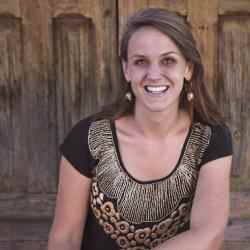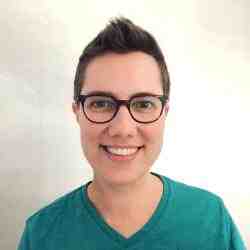Introduction
Piroska Horváth has designed a sports championship program that provides young Hungarians with an attractive alternative to drug abuse and other destructive activities. Participants engage in competitive sports, rather than street fights, and develop confidence in themselves and their futures, as well as an increased commitment to their communities.
The New Idea
Piroska's program represents a unique approach to drug abuse prevention in central Europe. It attracts young people with an accessible sports club that is open after school and in the evening, when they are likely to use alcohol and drugs. The well-equipped athletic center and structured sports program initially draw them in, but sports account for only a small part of the program's long-term impact. By working closely with volunteer counselors, both peers and adults, participants form lasting relationships and emerge as confident, productive citizens, and community leaders. Young people organize sports competitions as well as cultural programs, and exchange with other centers across the country. Piroska's program has been successful throughout Hungary, as she has established a network of clubs in both urban and rural settings.
The Problem
The recent political and economic reforms in central Europe introduced the promise of democracy and increased citizen participation. They also ushered in a difficult period of transition as economies strain to adjust to market forces and citizens struggle to design civic programs with limited resources. In these difficult times, unemployment, depression, and the perception that no alternatives exist contribute to a sense of hopelessness and despair to which many Hungarians succumb. Many young people turn to drugs and alcohol; studies reveal that drug use in Hungary has risen significantly in the past decade. Deaths related to drug abuse rose from two hundred and four in 1995 to three hundred thirty-nine in 1997. Between 1992 and 1995, the percentage of high school students who said they used drugs increased from 11.6 percent to 15.7 percent. Such statistics underline the urgency of engaging young people in meaningful relationships and providing a framework for them to gain skill and confidence in their abilities.
The Strategy
In 1994, after convincing a doctor that her idea held promise, Piroska secured three rooms in a local hospital, into which she moved a ping-pong table and officially launched her sports championship program. A month later, Piroska and four committed volunteers were handling fifty participants at each monthly championship. They awarded gift certificates to be redeemed at local shops. Young people were drawn to the program and to the sense of community it generated. Newspapers, radio, and television began to broadcast the story widely. The question for Piroska and her staff was no longer how to attact participants, but how to keep them involved after ping-pong.
For participants who did not wish to play table tennis, Piroska and her team designed other group activities, including games and reading. To supplement the sports program, Piroska began organizing cultural programs, including theater and film outings, and to find ways to encourage open and free dialogue among participants, many of whom shared similar self-doubts and fears. Under the leadership of an adult volunteer, the Chat Nook was inaugurated to provide a secure and private room for intimate discussion of personal problems, such as domestic abuse and drug addiction. The Chat Nook has become an integral part of Piroska's program, aiming to deepen the sense of community and build trust among participants. For many, the intimate discussions that occur in the Chat Nook are among the most influential in their lives.
Not only did Piroska wish to rescue young people from lives of drug addiction and crime, she also wanted to secure future opportunities for them. She designed a curriculum of weekly and biweekly language courses in English and German, as well as computer training. Noticing that younger children had begun coming to the center as well, she designed programs appropriate to their age and maturity.
After being invited to make a presentation to the Hungarian Parliament, and being continuously present in the media, Piroska was able to open ten centers. Each hosts an average of one hundred participants, with about forty attending each event. Piroska ensures that other centers adopt important components of her program, like the Chat Nook, so they do not function merely as sports clubs.
In 1997 and 1998, Piroska organized the first and second National Midnight Sports Championship with participation by all Hungarian clubs. Working with a German organization that ran another kind of drug prevention program, they organized the first International Championship in 1998, and started an exchange program with the German partner. Piroska wants to continue to expand the network nationally and internationally. She has contacted Romanian associations and would like to establish links with similar programs in the United States as well. From its launch in 1994, Piroska has successfully raised funds from public and private sources.
The Person
Trained as a family nurse, Piroska worked in one of Budapest's largest and poorest housing estates, where she met depressed and addicted parents, and their bored, self-destructive children. These people, she realized, held no hope for the future. Aided by colleagues, Piroska began conducting research on drug addition and its sociological and economic roots. She created an information hotline to help mothers and their small children.




